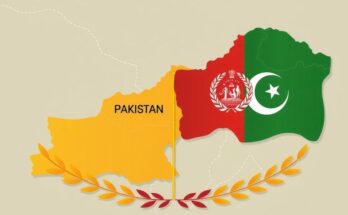The Kurdistan Workers’ Party (P.K.K.) declared a cease-fire in its conflict with Turkey following a request from its leader, Abdullah Ocalan. The cease-fire aims to pave the way for disarmament and disbandment, but key questions regarding Turkey’s military response and the future of P.K.K. fighters remain unresolved. A successful cease-fire potentially allows for democratic discussions within the Kurdish community.
The Kurdistan Workers’ Party (P.K.K.), a Kurdish guerrilla group engaged in a prolonged conflict against Turkey, has announced a cease-fire just days after a notable call from its imprisoned leader, Abdullah Ocalan, urging disarmament and disbandment. This conflict, which has persisted for four decades, has resulted in the deaths of tens of thousands. The P.K.K. indicated that the cease-fire would take effect immediately and emphasized the need for Ocalan’s release to facilitate the group’s dissolution.
Should the P.K.K. successfully disband, it would eliminate a significant domestic security issue and represent a significant political achievement for Turkish President Recep Tayyip Erdogan. Furthermore, if negotiations can proceed with Mr. Ocalan, it might herald a new period of peace in the region where armed Kurdish struggles have been ongoing, particularly in the mountainous areas connecting Turkey, Iraq, and Syria.
However, uncertainties remain regarding the future dynamics of this cease-fire. Senior fellow Asli Aydintasbas from the Brookings Institution remarked, “This is just the first sentence” regarding Ocalan’s directive for disarmament. It is still unclear whether Turkey will halt its military operations against the P.K.K. Furthermore, there are questions about who will oversee any truce and the potential fate of those fighters who choose to disarm, alongside what concessions, if any, the government may offer to Kurdish fighters.
If the cease-fire is successful, it could create an opportunity for the Kurdish community to engage in internal discussions and conduct local congresses aimed at establishing a democratic path forward, which has been an expressed desire among Kurds in Turkey and Syria.
The recent declaration of a cease-fire by the P.K.K. marks a critical juncture in the longstanding conflict between the Kurdish insurgent group and Turkey. While hopes for peace emerge following Ocalan’s call for disarmament, many challenges and uncertainties remain to be addressed, particularly regarding the government’s response and the future of Kurdish fighters. Establishing a basis for peaceful negotiations could significantly influence the geopolitical landscape of the region.
Original Source: www.nytimes.com




